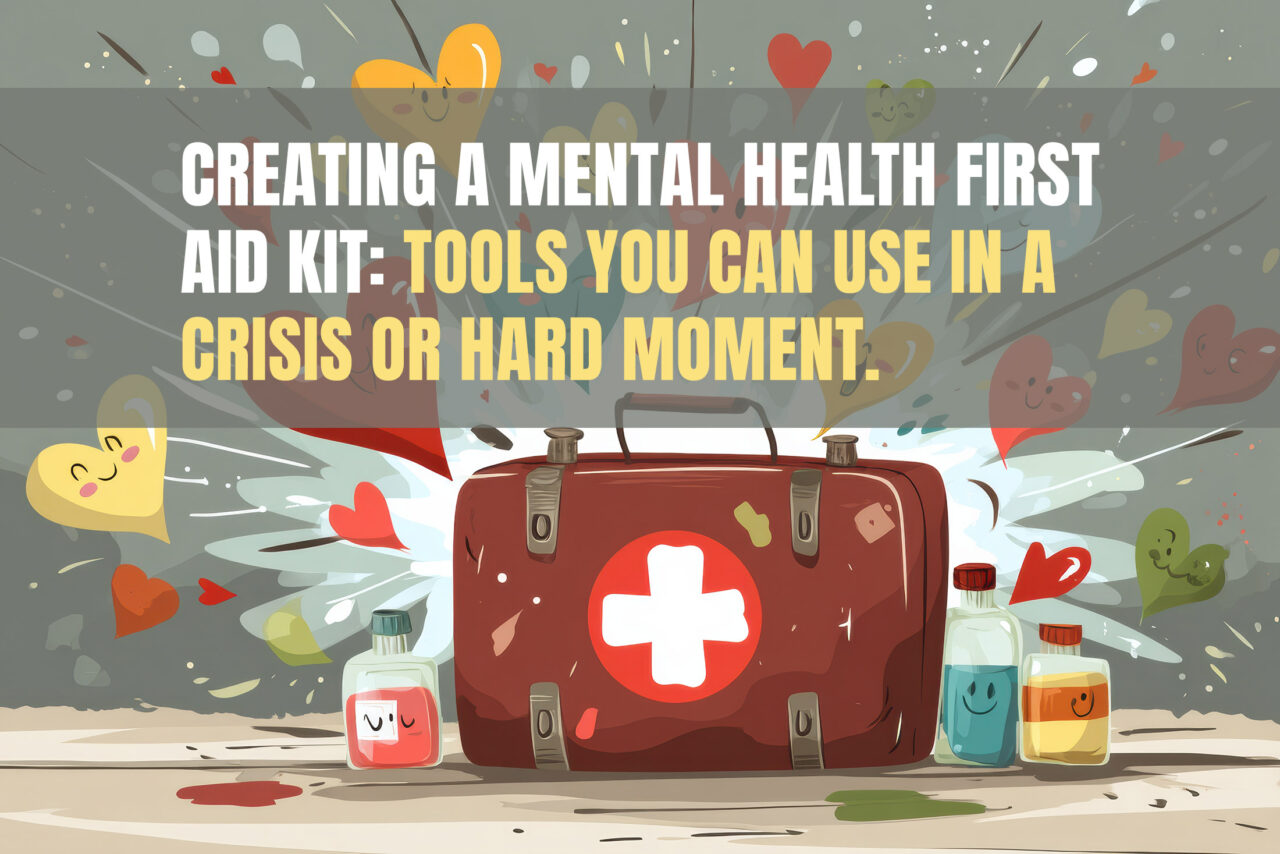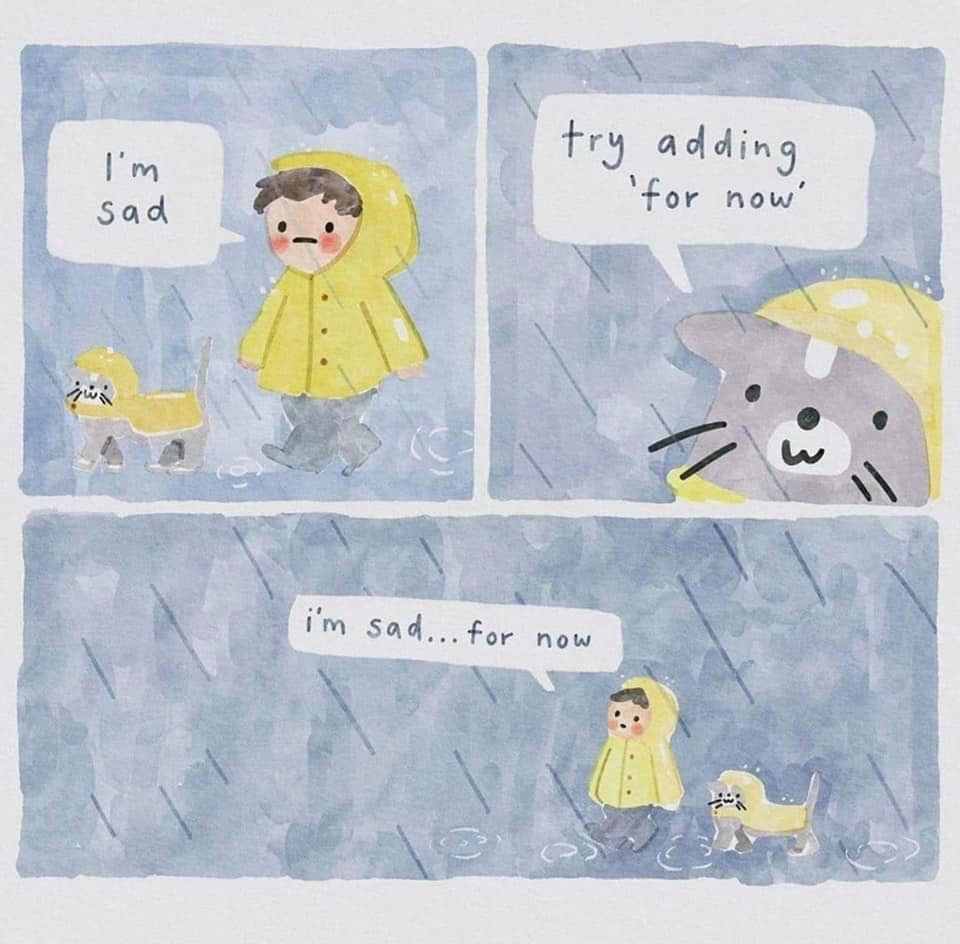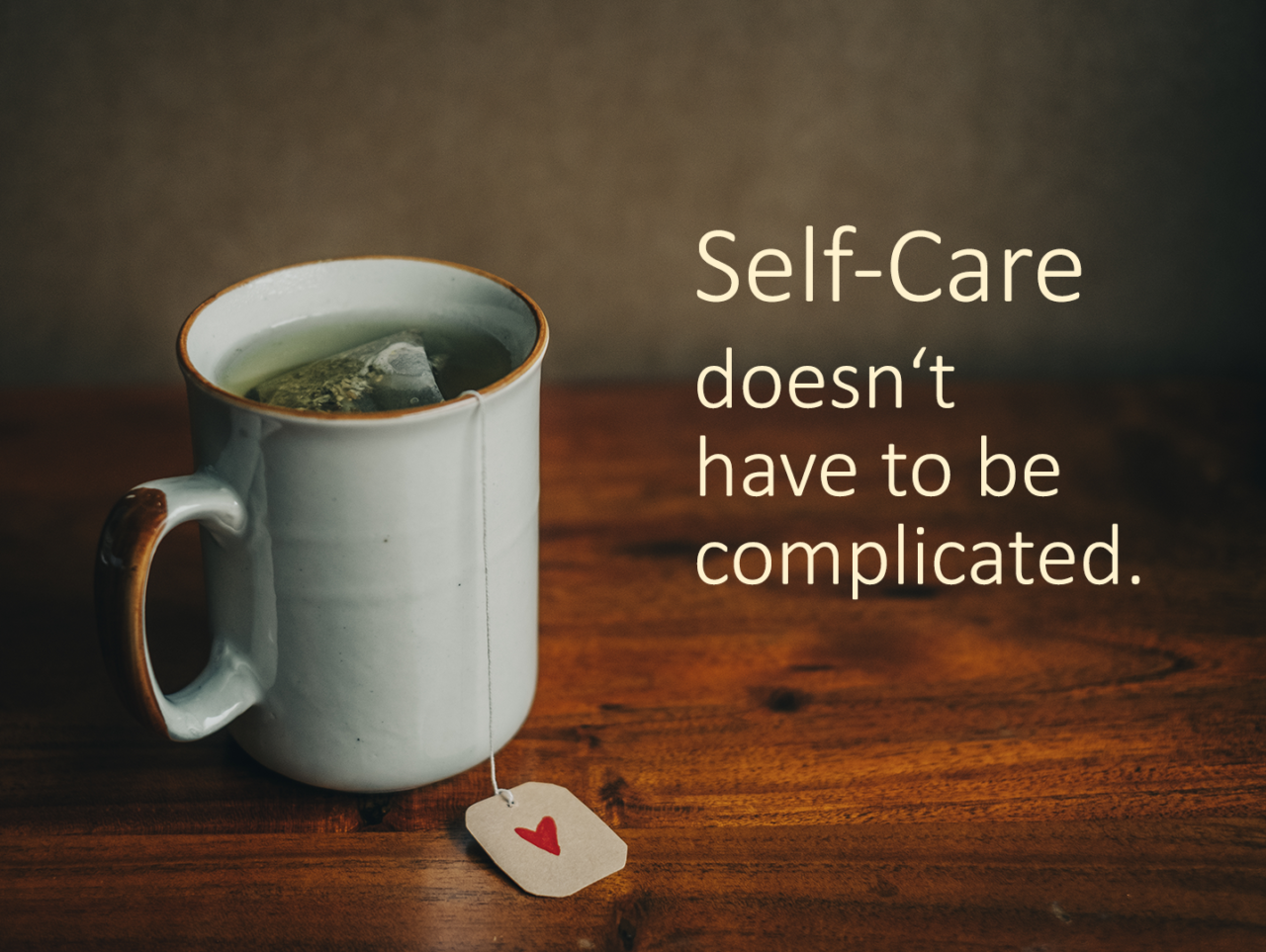Life doesn’t come with a pause button. One minute you’re fine, the next you’re spiraling. Anxiety attack. Relationship blow-up. Work stress boiling over. We’ve all been there — and in those moments, it helps to have something ready.
Think of a Mental Health First Aid Kit as your go-to survival pack for your mind. Not a box of band-aids and Advil, but a set of tools you can lean on when life feels too heavy.
Here’s how to build yours:
- Grounding Tools
- A favorite playlist that calms you down (or pumps you up, whatever works).
- A guided breathing app like Calm or Headspace.
- Something tactile; a stress ball, smooth stone, or fidget to keep your hands busy when your thoughts are racing.
- Words That Help
- A short note to yourself for when you forget your own strength. example: “You’ve survived 100% of your hardest days so far.”
- Quotes or affirmations that actually resonate with you — not cheesy, but real.
- Journaling prompts: “What do I need right now?” or “What would I say to a friend in this moment?”
- Comfort Items – suggestions
- A hoodie that feels like a hug.
- Herbal tea bags or your go-to snack.
- Scents that soothe you; lavender, eucalyptus, even your favorite candle.
- Emergency Contacts
- A short list saved in your phone: your best friend, your therapist, or someone you trust who “gets it.”
- Crisis hotlines, because sometimes you need immediate support:
- National Suicide & Crisis Lifeline: 988
- Crisis Text Line: Text HOME to 741741
- Reset Rituals
- A quick digital detox: silence notifications for an hour.
- Close your eyes + breathe: picture a safe place (beach, forest, childhood spot) and stay there for 60 seconds.
- Micro-gratitude check: name three things you’re thankful for right now — no matter how small (coffee counts).
- Step outside and touch grass (literally).
- 10 push-ups, a walk around the block, or a yoga stretch.
Why This Matters
We are juggling careers, side hustles, relationships, family pressures… all while trying to stay sane in a 24/7 world. Having a kit like this doesn’t make the stress disappear, but it gives you anchors when your brain feels like it’s sinking.
You don’t wait until you’re bleeding to find a band-aid. So don’t wait until you’re breaking to build your mental health first aid kit.











